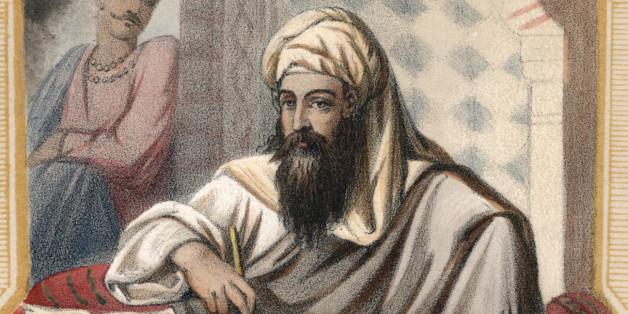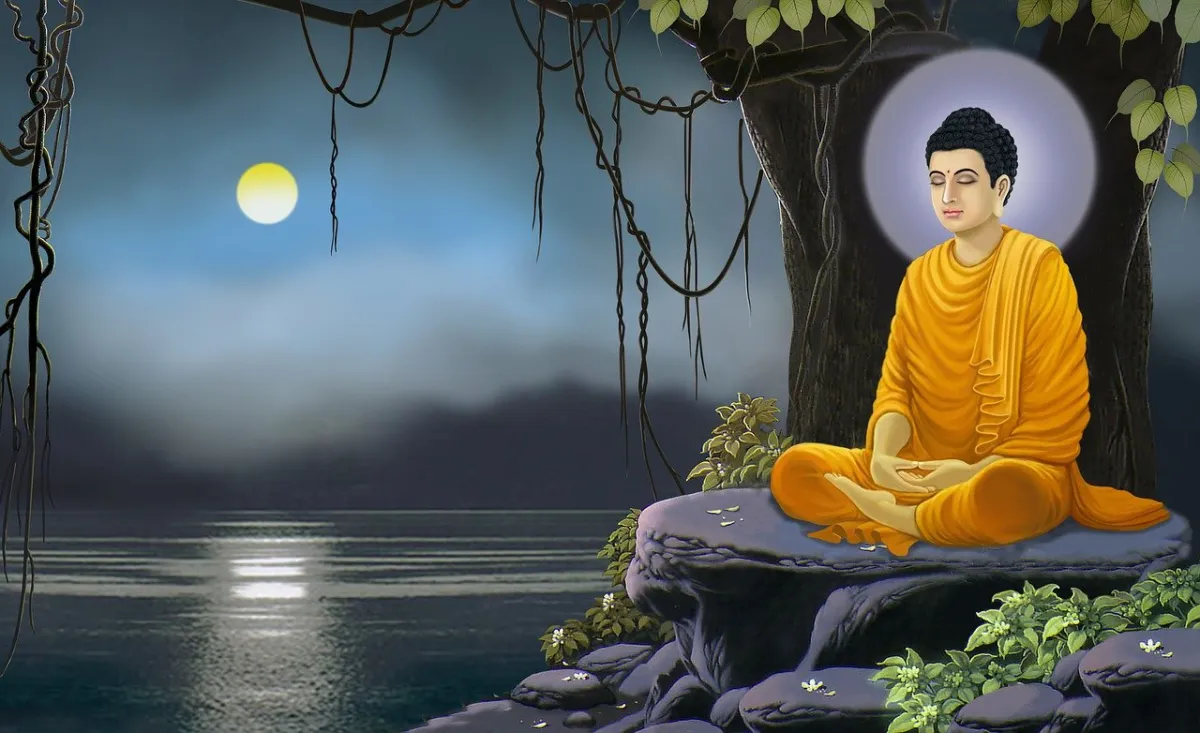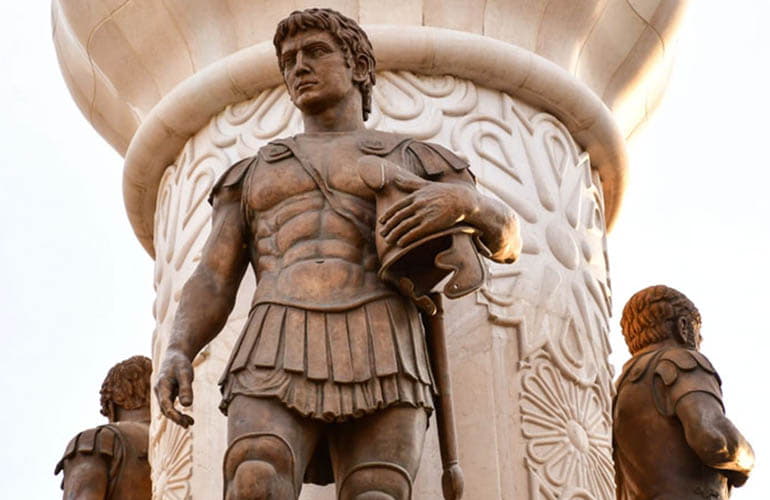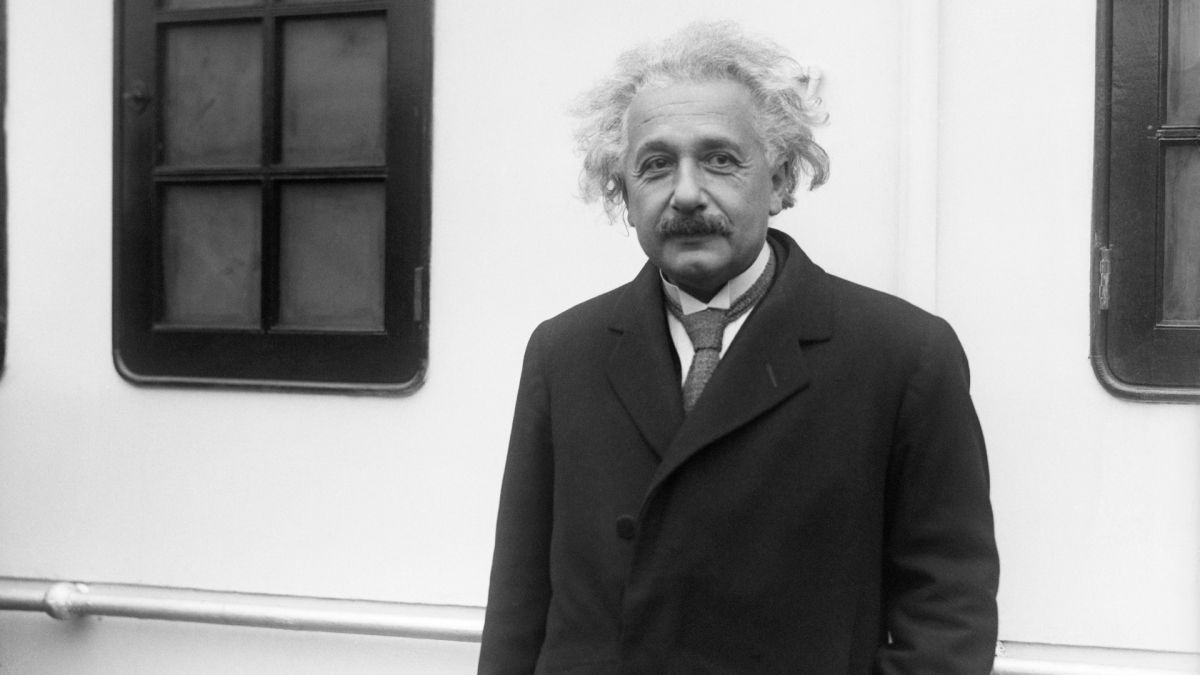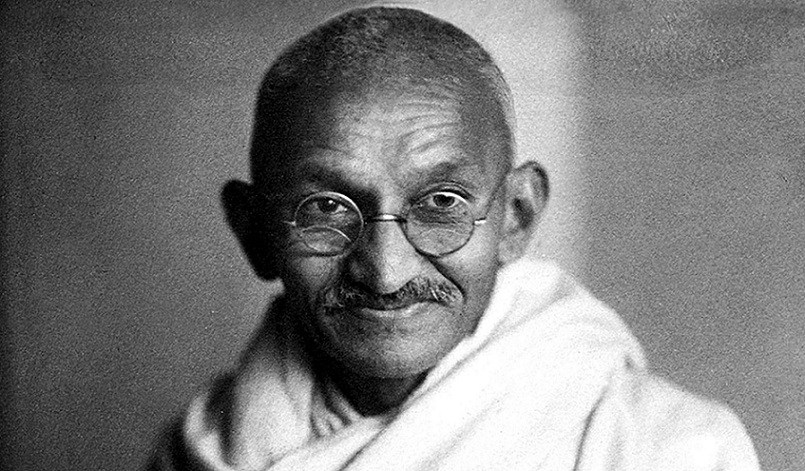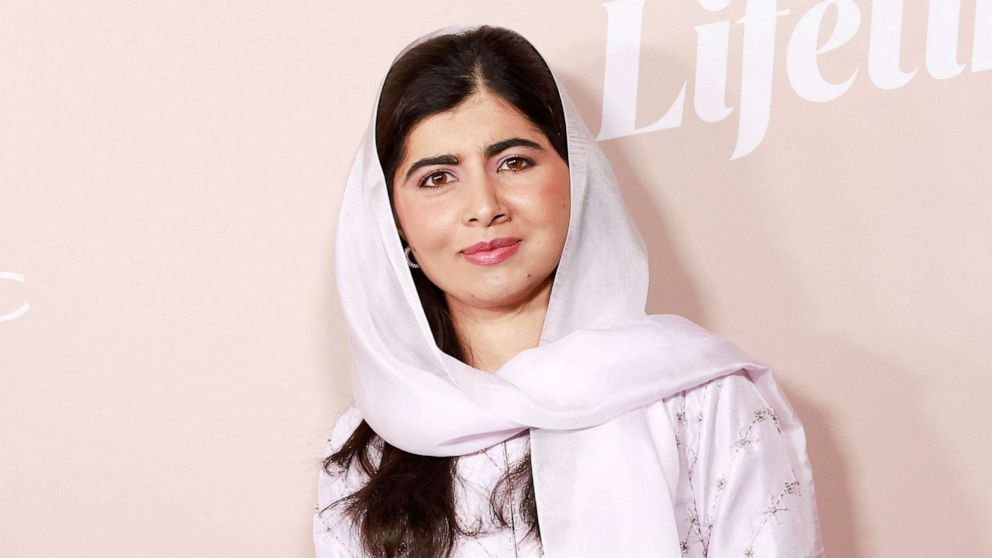Top Lists
Top 10 Famous People That Changed The World
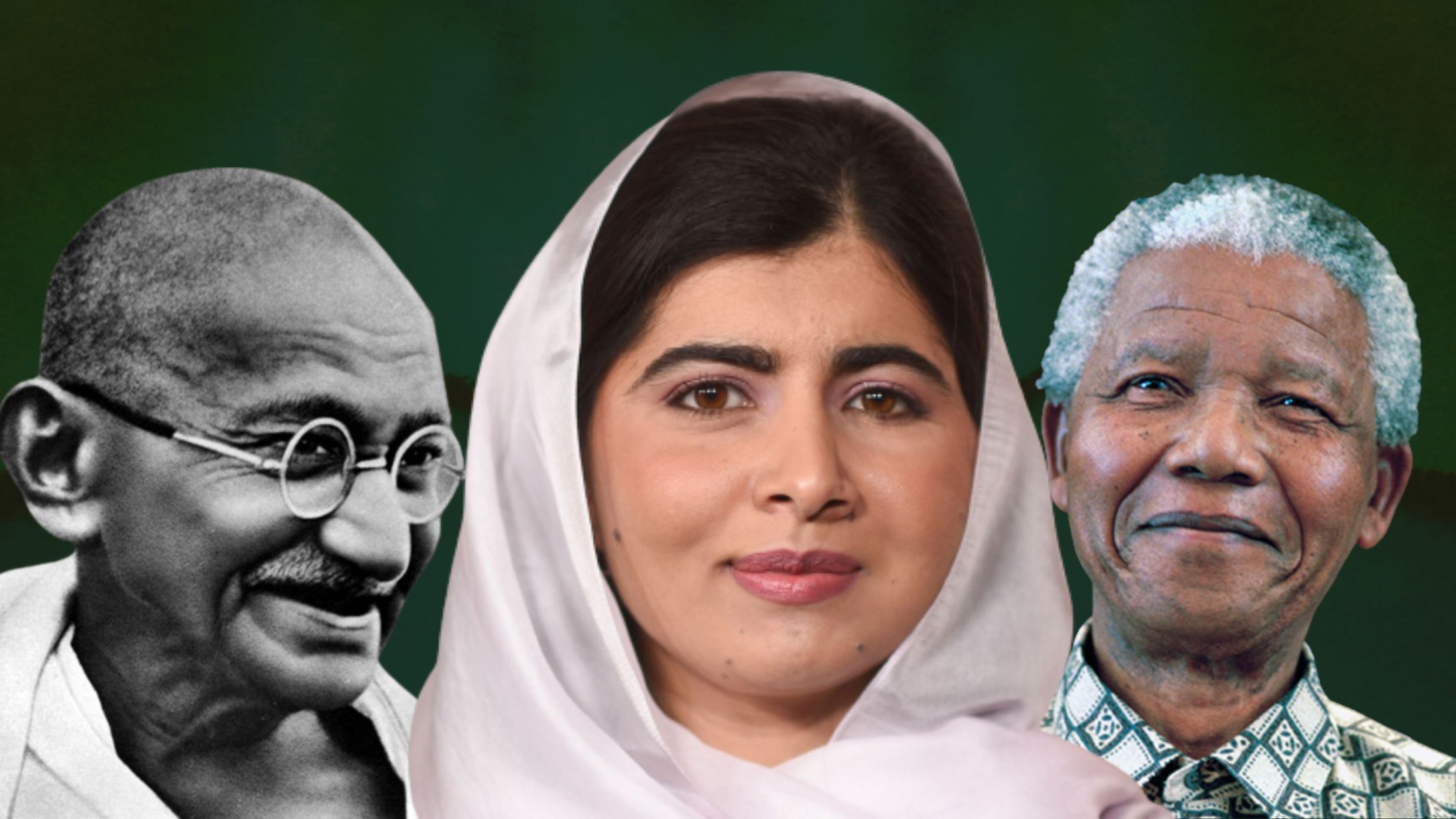
Top 10 Famous People That Changed The World: It is interesting to see how the world has evolved into a masterpiece influenced by great people’s significant decisions and sacrifices.
In this article, RNN compiled the famous people who we believed to have changed the world in one way or another. Their influence has been felt throughout the course of world history.
We are aware that numerous influential historical personalities have changed the world throughout the millennia, making it difficult, if not impossible, to single out any one of them as having had the biggest influence on current events.
However, we gave it a shot and assembled this post with some of the most motivational figures ever. They range in fame and notoriety, but they all share one thing in common: they all changed the path of history.
Top 10 Famous People That Changed The World
Here are the top 10 famous people who we believed to have changed the world:
1. Jesus Christ
The most influential person to ever lived (if so) is Jesus Christ; His influence has changed the paths of so many believers throughout history. He is also known as Jesus of Nazareth (among other names and titles), and he was a Jewish preacher and religious figure in the foremost century.
Christianity is the most popular religion in the world. The majority of Christians think he is both the long-awaited Messiah (the Christ) predicted in the Hebrew Bible and the incarnation of God the Son.
Almost all contemporary experts on antiquity concur that Jesus existed in the past. Given that the Gospels are the only comprehensive accounts of Jesus’ life, research into the historical Jesus has led to some uncertainty regarding the historical veracity of the Gospels and how closely the Jesus portrayed in the New Testament reflects the genuine Jesus.
According to Christian theology, Jesus was born of a virgin named Mary, was conceived by the Holy Spirit, performed miracles that established the Christian Church was crucified as a sacrifice to atone for sin, resurrected from the dead, and ascended into Heaven, from where he will return.
Christians frequently hold the view that Jesus makes it possible for humans to make peace with God. According to Christian eschatology, Jesus will judge the living and the dead before or after their physical resurrection, according to the Nicene Creed. This event is connected to Jesus’ Second Coming.
2. Muhammad
Prophet Muhammad (S.A.W) is also one of the famous people that changed the world. He was the creator of Islam and a prominent figure in Arab politics, society, and religion. He was a prophet who preached and validated the monotheistic teachings of Adam, Abraham, Moses, Jesus, and other prophets, in accordance with Islamic doctrine.
Within Islam, he is revered as the Prophets’ Seal. The Quran, together with Muhammad’s teachings and actions, served as the cornerstone of Islamic religious belief and helped to unite Arabia into a single Muslim government.
Muhammad was born in Mecca around 570 CE. He was the child of Amina bint Wahb and Abdullah ibn Abd al-Muttalib. Abd al-Muttalib ibn Hashim, the head of the Quraysh cohort, had a son named Abdullah, who passed away a few months before Muhammad was born. Muhammad lost his mother Amina when he was six years old, leaving him an orphan.
Islamists are the second-largest religious group in the world. Islam is practised by 1.97 billion people in the world accounting for nearly 25% of the world’s population. According to a PEW forecast, there would be 1.90 billion Muslims worldwide in 2020. All of these people are influenced by the teachings and guidance of Muhammad.
Although their correctness cannot be verified, many academics believe his early biographies as credible. Scholars now distinguish between historical occurrences and merely historical traditions as a result of recent studies.
Traditions in the legal group might have been invented, although, outside of extraordinary circumstances, historical events might simply have been susceptible to “tendential moulding.”
3. Isaac Newton
Another important figure among the people that changed the world is Isaac Newton. He was an English author, physicist, astronomer, alchemist, and mathematician (described in his time as a “natural philosopher”).
A pivotal figure in the philosophical movement known as the Enlightenment was Isaac Newton. He founded classical mechanics in his 1687 work Philosophiae Naturalis Principia Mathematica (Mathematical Principles of Natural Philosophy).
Newton co-developed the concept of infinitesimal calculus with German mathematician Gottfried Wilhelm Leibniz, and he made important contributions to optics as well.
Based on his discovery that a prism divides white light into the visible spectrum’s colours, Newton constructed the first useful reflecting telescope and created the theory of colour. His very significant book Opticks, which was published in 1704, gathered his work on light.
He also developed the idea of a Newtonian fluid, performed the first theoretical estimate of sound speed, and developed an empirical law of cooling. Newton made contributions to the study of power series, extended the binomial theorem to non-integer exponents, created a method for approximating function roots, and categorized the majority of cubic plane curves in addition to his work on calculus.
4. Gautama Buddha
Siddhartha Gautama, also known as the Buddha is one of the famous people that changed the world; Buddha was a wandering monk and spiritual guide who lived in South Asia in the sixth or fifth century and is credited with founding Buddhism.
According to Buddhist legend, he was born to royal Shakya clan parents in Lumbini, in what is now Nepal, but he gave up his family life to live as a wandering monk. In what is now India, at Bodh Gaya, he attained enlightenment after living a life of begging, penance, and meditation.
After that, the Buddha travelled the lower Indo-Gangetic Plain, giving lectures and establishing monastic orders. He advocated for a middle path that avoids extreme asceticism while still allowing for sensuous enjoyment, ultimately to Nirvana, or the escape from ignorance, yearning, rebirth, and sorrow.
Since then, many Asian communities and religions have honoured the Buddha. He was given the name Buddha a few centuries after his passing, which means “Awakened One” or “Enlightened One.”
His teachings were collected by the Buddhist community into the Sutta Plaka, a collection of teachings based on his talks, and the Vinaya, his rules for monastic conduct.
5. Alexander The Great
Alexander the Great really changed the course of history. Also known as Alexander III or Alexander of Macedonia, was king of Macedonia (336-323 BCE) and was born in Pella, Macedonia, 356 BCE, northwest of Thessaloniki, Greece.
He overthrew the Persian empire, sent Macedonian weapons to India, and established the Hellenistic world of territorial kingdoms. He had been the topic of fantastic tales throughout his lifetime and afterwards rose to the status of becoming the protagonist of a grand legend that bore only a passing relation to his actual professional life.
Alexander the Great was trained by Aristotle from the age of 13 to 16, who sparked his interest in philosophy, medicine, and scientific inquiry. However, he would subsequently go beyond his teacher’s constricting belief that non-Greeks should be treated as slaves.
On the other hand, his attempts to combine different races were unsuccessful. Perhaps the Iranian satraps were ineffective since, out of 18, 10 were either dismissed or executed—with what justification is no longer clear.
But more importantly, the Macedonians, both individuals and leaders, rejected the notion, and the Greek and Macedonian elements were to clearly predominate in the later Seleucid empire.
Alexander is one of the best generals the world has ever known. The Shaka nomads, Indian hill tribes, or Porus with his elephants presented him with a challenge that required extraordinary adaptability in both the combination of diverse weapons and the adaptation of his tactics.
He knew how to take advantage of the opportunities that present themselves in every battle and could mean the difference between success and defeat. His plan was deft and creative.
6. Albert Einstein
He needs no introduction. Albert Einstein is widely acknowledged to be one of the greatest and most influential physicists of all time. The theory of relativity is what Einstein is most famous for, although he also made significant contributions to the theory of quantum mechanics.
The two foundational theories of modern physics are relativity and quantum mechanics. Einstein wrote four seminal works in 1905 (which are definitely his groundbreaking achievements), a year that is commonly referred to as his annus mirabilis (‘miracle year’).
These described the photoelectric effect hypothesis, clarified Brownian motion, established special relativity, and illustrated the equality of mass and energy. The idea that the electromagnetic field’s principles and those of classical mechanics could no longer be harmonized inspired Einstein to create his special theory of relativity.
Science typically develops gradually. Contributions that raise the scientific red flag that a dramatic upheaval is imminent are few and far between. But in one case, one man rang the bell four times in a single year, displaying an astounding burst of original thought.
The scientific community could perceive Einstein’s work’s effects on the fundamental conception of reality almost immediately. But Einstein was not yet known as Einstein by the general public.
7. Karl Marx
Karl Marx is also one of the famous people that changed the world. He was a German philosopher, economist, historian, sociologist, political theorist, journalist, political economics critic, and socialist revolutionary.
His two most well-known works are the four-volume Das Kapital and the 1848 booklet The Communist Manifesto (1867–1883). Marx’s political and philosophical ideas had a significant impact on later historical periods in the fields of thinking, economy, and politics. His name has been applied to a social theory school, an adjective, and a noun.
Marx’s critiques of society, economics, and politics, generally known as Marxism, contend that class antagonism is the primary mechanism by which human societies emerge.
This displays itself in the conflict between the working classes (also known as the proletariat) who enable these means by selling their labour power for salaries and the ruling classes (also known as the bourgeoisie) who control the means of production in the capitalist mode of production.
The roots of future communist leaders like Vladimir Lenin and Leon Trotsky were built by Marx’s work. His theories laid the groundwork for Marxism and provided the theoretical framework for communism, both of which operated under the presumption that capitalism held the seeds of its own demise.
Marx almost exclusively wrote from the perspective of the average worker. Marx is credited with popularizing the notion that capitalist profits are attainable because the value is “stolen” from employees and given to employers.
8. Nelson Mandela
Nelson Mandela was a very influential and respected person in the world. Nelson Rolihlahla Mandela was a politician and anti-apartheid campaigner from South Africa who presided over the country as its first leader from 1994 to 1999.
He was the first completely representative democratic election to elect a black head of state in the history of the nation. His administration concentrated on promoting racial harmony in order to erase the effects of apartheid. He presided over the African National Congress (ANC) party from 1991 to 1997 and was an ideological socialist and African nationalist.
For a very long period, South Africa imposed racial segregation. Voting rights were denied to people of colour. Nelson Mandela began negotiations with Frederik William de Klerk after his release from prison in 1990.
When multiracial elections were held in 1994, apartheid came to an end. He was certain that future laws and deeds should never be motivated by resentment over previous offences. His greatest impact on the nation of New South Africa was this.
His 1995 creation of a Truth and Reconciliation Commission, which looked into historical human rights breaches and addressed complaints, was crucial to this.
9. Mahatma Gandhi
Mahatma Gandhi is one of the top 10 famous people that changed the world. Mohandas Karamchand Gandhi, better known as Mahatma Gandhi, was an Indian revolutionary, anti-colonial nationalist, and political ethicist who used nonviolent resistance to inspire movements for civil rights and freedom around the globe.
He led the successful campaign for India’s independence from British rule. In 1914, in South Africa, the title Mahatma was first used to refer to him.
Beginning in the early 1920s, Gandhi’s non-cooperation movement urged Indians to reject British goods and customs and develop independence. In 1930, Gandhi led thousands of Indians on a 250-mile march to a seaside town to make salt, a commodity on which the British held a monopoly.
This was his most well-known protest. demonstrated that one man is capable of defeating an empire by combining ethics and intelligence. He has deservedly earned a spot in the world-changing historical moments.
Gandhi spearheaded national movements for eradicating untouchability, advancing women’s rights, promoting religious and ethnic harmony, and, most importantly, establishing swaraj (self-rule).
10. Malala Yousafzai
Malala Yousafzai is definitely one of the top 10 famous people who change the world. She is a female education campaigner from Pakistan and the 2014 recipient of the Nobel Peace Prize. She is the youngest Nobel Prize winner ever, the second Pakistani, and the first Pashtun to do so. She received the award when she was just 17 years old.
She is well-known for advocating for human rights, particularly the education of women and children in Swat, where the Pakistani Taliban have occasionally forbade girls from attending school. According to former prime minister Shahid Khaqan Abbasi, her cause has become a global movement and she is now Pakistan’s “most prominent citizen.”
The 11-year-old Pakistani student kept an anonymous diary on life in north-western Pakistan when it was ruled by the Taliban, a radical organization.
She wrote in the diary that she wanted to continue her education and that girls should be able to attend school. Girls’ education was to be outlawed by the Taliban. The diary was widely read by readers all over the world, and she gained notoriety for her advocacy of the right to an education.
The Taliban, however, didn’t like this. She was shot by their soldiers in October 2012 as a result of what she wrote in her diary, but she survived the incident. What happened to her shocked the entire globe, and Malala swiftly gained the backing of millions more individuals.
The threats Yousafzai faced escalated as she gained more notoriety. Newspapers publicized and put under her door threats to kill her. She was a frequent Facebook user when she started getting threats.
Later, a Pakistani Taliban spokesman said that they had been “forced” to take action. At a meeting in the summer of 2012, Taliban leaders all decided that she should be killed.
She continued to advocate for girls’ rights around the world, graduated from college, wrote books, and inspired many generations.
Conclusion
In conclusion, the world is a complex and ever-changing place, and it is often difficult to identify the individuals who have had the most profound impact on its course.
However, the 10 people listed in this article are just a few of the many famous people who have changed the world. Their contributions have come in many different forms, from political activism to scientific discovery to artistic expression. But what they all have in common is that they have made a difference in the lives of others, and their work has helped to make the world a better place.
We can all learn from the examples of these famous people. They show us that it is possible to make a difference, no matter how small our actions may seem. They also show us that it is important to stand up for what we believe in, even when it is difficult.
Top 10 Famous People That Changed The World
Here is a list of the top 10 famous people that change the world
1. Jesus Christ
2. Prophet Muhammad
3. Isaac Newton
4. Gautama Buddha
5. Alexandra The Great
6. Albert Einstein
7. Karl Marx
8. Nelson Mandela
9. Mahatma Gandhi
10. Malala Yousafzai
READ ALSO:
- Top 10 World’s Infamous Blunders That Changed History
- 10 Most Terrifying Civilizations in the History
- Top 10 Most Beautiful Countries In The World
- Most Powerful Queens In African History
- Top 10 Most Famous People In The World
SOURCE: History.Com, Wikipedia, Britannica, Quora


